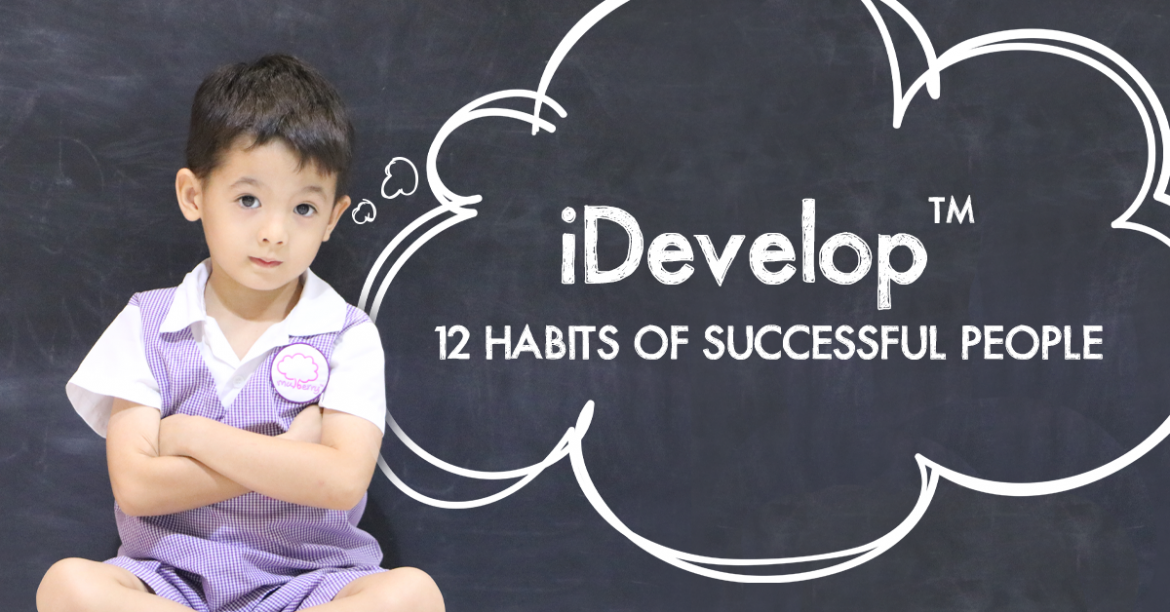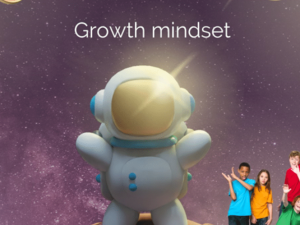

iDevelop – Developing Intelligent Thinking and Behavioral Dispositions Through the Habits of Mind.
Have you ever observed how your child reacts when confronted with a difficult problem or unfamiliar situation? Does he or she get frustrated and break down in tears, throws a tantrum or even shutdown and hide?
Children often fear the unknown and feel most secure when there is predictability in their lives. Routines give them a sense of comfort as they do not yet fully grasp the concept of time, as their lives are shaped by the events that reoccur and not by the hours and minutes.
Then again, what do we do when life suddenly decides to throw a spanner in the works? It might not be a problem for us adults as we might have experience to guide us through. But what is a child to do when the routine they are so accustomed to gets interrupted?
This is where “iDevelop” comes into action. As one of the four components of the proprietary curriculum model by Mulberry Learning, “iDevelop” is designed to develop the child’s thinking and behavioral dispositions according to the Habits of Mind framework.
The framework serves as a guide that outlines patterns of skillful thinking and behaving in intelligent ways and are demonstrated when the child is confronted with life’s dilemmas and problems. Basically, it teaches the child the most appropriate response for any given situation.
Habits of Mind has been chosen by many leading educational establishments around the world as a set of skills and attitudes that is necessary to prepare students for future challenges. Education and corporate experts all agree that the world is growing increasingly volatile, uncertain, complex and ambiguous. They term this environment “VUCA” and they believe that the Habits of Mind framework better prepares the child for such a world.
Examples of Habits of Mind in Action:
Persisting:
A child that is trying hard to learn a new musical instrument is encouraged to persevere and not give up until he/she achieves success. This is the habit of Persisting which tells the child to keep trying.
Managing Impulsivity:
A child who has his painting accidentally messed up by his friend learns to keep calm and to think before reacting. This deliberativeness is the essence of Managing Impulsivity.
Striving for Accuracy:
A child that checks his / her work or assignment thoroughly before submitting it to the teacher demonstrates a desire for accuracy and precision. The child takes pride in their work and constantly Strives for Accuracy in all that they do.
Of the 16 habits, we have specially curated 12 habits that are mindfully infused into our curriculum, teachable moments, and daily routines:
- Listening with Understanding and Empathy
- Gathering Data through all Senses
- Persisting
- Managing Impulsivity
- Thinking Interdependently
- Creating, Imagining, and Innovating
- Striving for Accuracy
- Applying Past Knowledge
- Questioning and Problem Posing
- Thinking Flexibly
- Finding Humour
- Thinking About Your Thinking
These habits will naturally take root in the child’s thinking processes and outward behavior through activities such as play and discussions on habit-related stories. The manifestation of such habits is evident during the project inquiry processes where the child subconsciously uses the Habits of Mind to think and problem-solve.
As parents and teachers, it is our responsibility to instill these habits in our children and teach them to value intelligent, creative, and rational action. We must believe that ALL children can continue to grow in their ability to behave more intelligently and also set an example by becoming models of these Habits of Mind ourselves and to hope that they will carry these positive habits into adulthood.
Mulberry Learning is the only preschool chain certified by The Institute for Habits of Mind.




